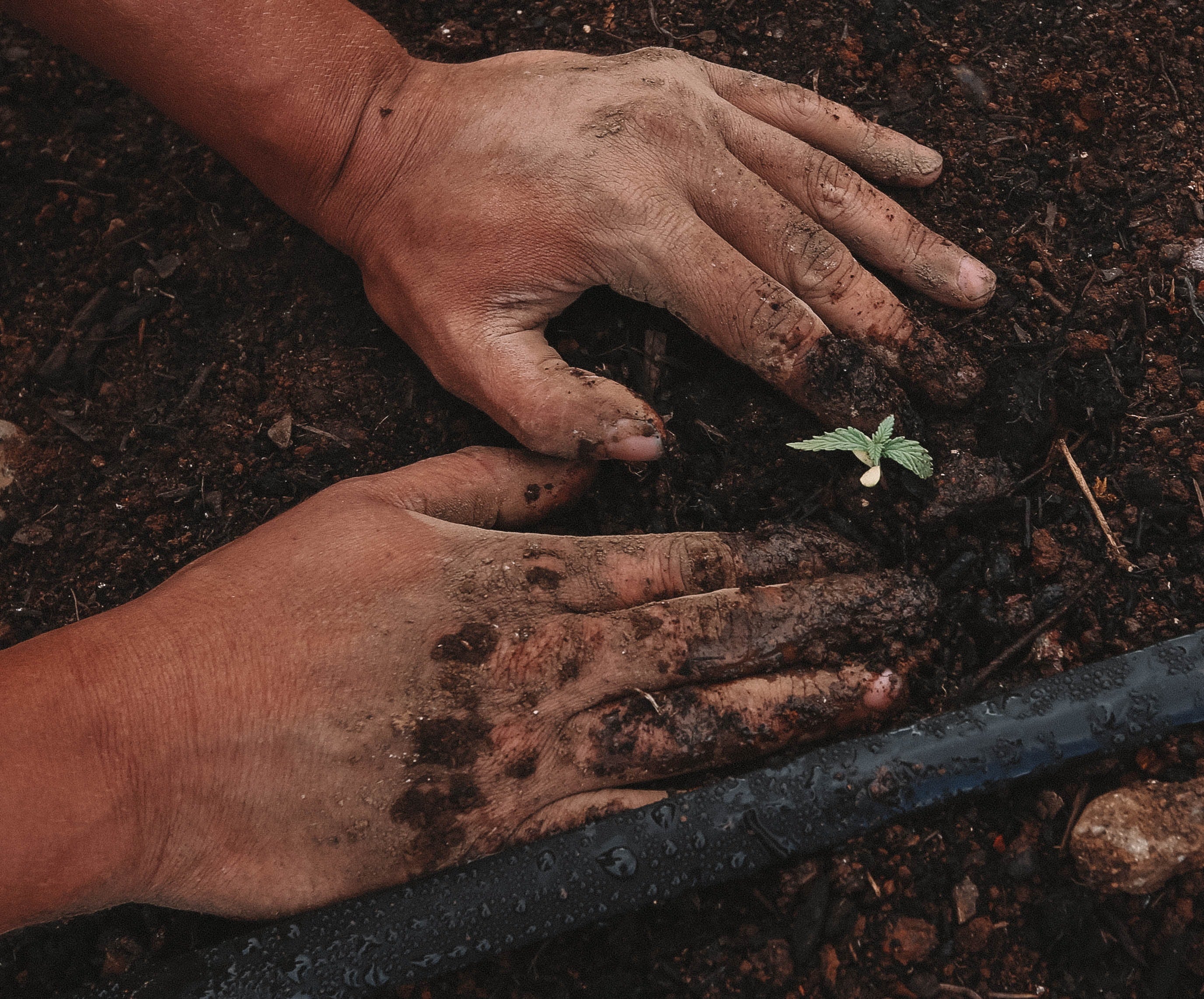

Winter need not be a desolate period for your survival garden. With the appropriate choice of cold-hardy vegetables, you can transform your winter garden into a lively and fruitful space. Whether you're an experienced gardener or a beginner with a green thumb, Seed Armory has you covered with this winter vegetable planting checklist. This comprehensive guide will assist you in cultivating robust vegetables capable of enduring chilly temperatures. Additionally, it will introduce you to 10 vegetables that excel in surviving cold seasons, all of which Seed Armory provides 100% heirloom, non-gmo, organic seeds for. Let's explore the top 10 cold-season veggies that will not only endure but flourish during the winter months.
1. Kale (Brassica oleracea var. acephala)
Kale, a nutritional powerhouse, is known for its ability to withstand frost. Plant it in well-drained soil and watch it flourish in the winter chill. Consider varieties like Lacinato or Winterbor for a robust winter harvest.
2. Carrots (Daucus carota)
Carrots are not just a summer delight; they can also be a winter wonder. Choose cold-resistant varieties such as Bolero or Napoli. Plant them in loose soil to allow for easy root growth and harvest them throughout the winter for fresh, crunchy goodness.
3. Broccoli (Brassica oleracea var. italica)
Broccoli is a versatile vegetable that thrives in cooler temperatures. Ensure your garden gets ample sunlight and plant broccoli early to enjoy a bountiful harvest. Cold-tolerant varieties like Artwork or Green Magic are excellent choices.
4. Spinach (Spinacia oleracea)
Spinach loves the cold, making it an ideal winter crop. Sow the seeds in well-drained soil, and you'll be picking nutrient-packed spinach leaves in no time. Consider varieties like Bloomsdale or Winter Giant for a reliable winter harvest.
5. Brussels Sprouts (Brassica oleracea var. gemmifera)
Brussels sprouts are a winter garden classic. These mini cabbages thrive in colder temperatures and can withstand frost. Opt for varieties like Long Island Improved or Churchill for a steady supply of these tasty greens.
6. Cabbage (Brassica oleracea var. capitata)
Cabbage is a hardy vegetable that can endure the winter cold. Plant it in nutrient-rich soil and provide adequate spacing for optimal growth. Varieties like January King or Copenhagen Market are excellent choices for a winter cabbage patch.
7. Winter Radishes (Raphanus sativus)
Winter radishes, such as Daikon or Watermelon radishes, add color and crunch to your winter salads. These root vegetables thrive in cool temperatures and are easy to grow. Plant them in well-drained soil for a successful winter harvest.
8. Garlic (Allium sativum)
Planting garlic in the fall ensures a robust harvest come spring. Choose a well-drained location, and plant individual cloves about six inches apart. Garlic not only survives winter but also benefits from the cold, developing richer flavors.
9. Leeks (Allium ampeloprasum var. porrum)
Leeks are a cold-tolerant member of the onion family. Plant them in fertile soil and provide consistent moisture for optimal growth. Varieties like Tadorna or American Flag thrive in winter conditions, offering a mild onion flavor to your dishes.
10. Swiss Chard (Beta vulgaris var. cicla)
Swiss chard is a resilient leafy green that can withstand winter temperatures. Plant it in well-drained soil and enjoy its colorful stems and nutrient-rich leaves throughout the colder months. Varieties like Bright Lights or Fordhook Giant add visual appeal to your winter garden.

Winter Vegetable Planting Checklist: Cultivating a Cold-Weather Harvest
Before Planting:
Embarking on a winter vegetable gardening endeavor requires careful consideration of the following crucial steps:
- Soil Preparation: Ensure your soil is not only well-drained but also rich in organic matter. Prior to planting, supplement the soil with compost or well-rotted manure to provide the essential nutrients required for the optimal growth of winter vegetables.
- Proper Spacing: Allocate ample space for your plants to thrive. Avoid overcrowding, as this promotes better air circulation, minimizing the risk of diseases that may arise from damp and stagnant conditions.
- Mulching: Lay down a protective layer of mulch around your plants. This not only helps in conserving soil moisture but also aids in temperature regulation and weed control.
During Planting:
- Timing: Plant your winter vegetables early to allow sufficient time for the establishment of robust root systems before the onset of harsh winter conditions. This ensures that your plants are better equipped to withstand the challenges of colder weather.
- Watering: Provide consistent watering, especially during dry spells. Keep the soil consistently moist without letting it become waterlogged, as this balance is crucial for the health and productivity of your winter crops.
After Planting:
- Protection: Safeguard your plants from extreme cold and frost by utilizing row covers or cloches. This additional layer acts as a shield against harsh weather conditions, significantly improving the chances of your plants surviving the winter months.
- Regular Monitoring: Keep a vigilant eye on your winter garden. Regularly inspect your plants for signs of pests or diseases, and address any issues promptly to prevent them from spreading and causing potential harm.
- Harvesting: Harvest your winter vegetables on a regular basis to stimulate continuous production. Some cold-tolerant varieties, such as kale and spinach, actually develop a sweeter flavor after exposure to frost.
By diligently adhering to this winter vegetable planting checklist and selecting varieties well-suited for cold weather, you can transform your garden into a thriving oasis even in the coldest months. Check out our amazing selection of winter seeds that will transform your garden year round. Embrace the winter chill, and watch as your garden yields a bounty of fresh and flavorful vegetables. Happy gardening!






